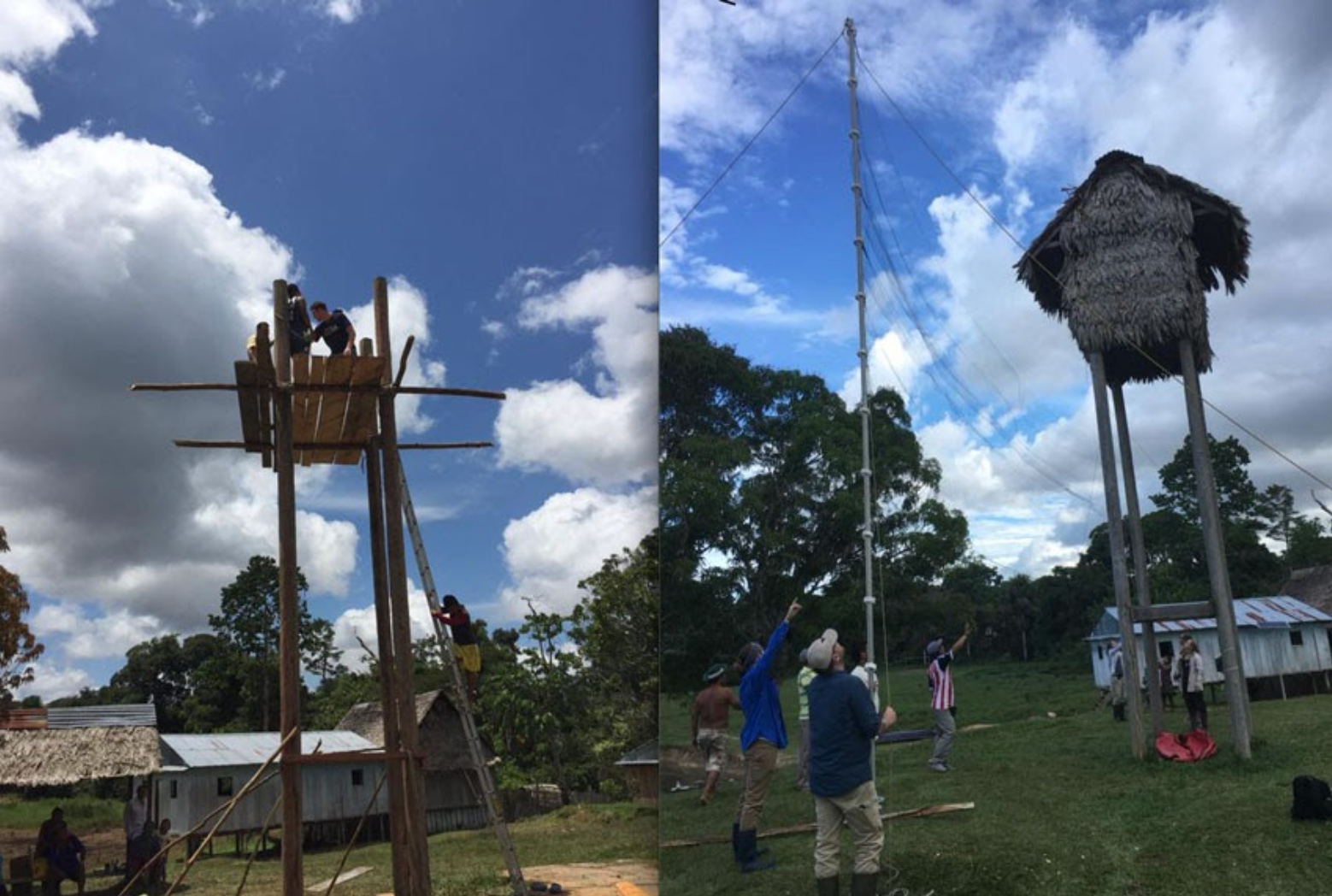
“You never know how powerful an idea is until you go out and put it into action”, those were the words from Yunus & Youth Fellow Tyler Vogel as advice to young students when he was invited to speak at high school graduation last month. Tyler, a 24-year-old social impact professional from the United States, is the executive director and co-founder of “Wings of the Night”.
Wings of the Night is a social business that strives to support sustainable, community-centric approaches to prevent malaria. They partner up with rural communities of Peru in constructing large volume bat houses to deplete the micro-population of mosquitoes surrounding the community and sustainable and responsible approach to combating malaria.
The initiative started in 2014 with Tyler and two of his friends from college, Ana and Isaac. Tyler loves animals and was a Biology major at Wartburg College; the 3 friends took a class together in social entrepreneurship where they could explore sustainable development. The Y&Y Fellow was interested in community action since his freshmen year when he and his team got an award from Clinton Global Initiative University through the Resolution Project Social Venture Challenge. He and his team were passionate about fighting Malaria since the disease had an impact on both of his friend’s families and decided to take an innovative approach to combat the disease. Tyler’s interest includes Public Health and his goal is to lessen the burden from rural communities that have no other options for preventing malaria.
Wings of the Night proposes a unique, eco-friendly, and financially viable preventative approach to help deplete the infection rate of malaria and other mosquito-borne diseases in the most vulnerable regions of the world. Through collaboration with local NGOs and community leaders, local materials and craftsmanship are used to construct large bat housing complexes near rural communities. The native bats roost near the village and predation from the bats help deplete the micro-population of mosquitoes near the village.
In 2017, during his last semester in undergrad, Tyler was looking for the perfect location to start his pilot project. He went to Sucusari – an indigenous Maijuna community that helps steward 1,000,000 acres land in Peru where his team had connections – to start his new social venture. They chose that specific area for a few reasons: The diversity of bats (small, mosquito eaters), rural communities with limited access to medical and other material resources. The Loreto region, where Sucusari is located, is one of the most biologically diverse areas in the world; additionally, ecotourism has a strong presence there. One thing Tyler is proud of is how much he has really grown from working with community leaders. Sucusari community leaders taught Tyler what connection to a community and nature can look like reflected through cultural heritage.
Tyler was a president of the student body at Wartburg and knew the importance of community action. He volunteered before his senior year at Denver Health Medical Center, a trauma 1 hospital, which helped him begin to map out his vocation. After undergrad, he applied to the University of Minnesota to pursue his master’s degree and study Sustainable Development at the Humphrey School of Public Affairs. His goal is to create innovative approaches to combat malaria. Today, Tyler is working with qualitative and quantitative data to measure the impact of his initiative and the proof-of-concept. By the end of summer, his team expects to have more results supporting mosquito depletion in the area. They are working with the regional mosquito prevention associations and the University of Minnesota to get recommendations on the most up-to-date technical measures to pursue.
Tyler has a small team of faculty advisors and program coordinators to help with his challenge. He is now facing the expansion model for his initiative to be sustainable. His next steps are getting a job in an organization that supports his work and where he can develop his skills, keep in contact with Y&Y for support, and keep working with One Planet. Wings of the Night is partnering with One Planet to save lives in indigenous communities, but his social venture is one of a kind, there is currently no other organization that is utilizing native bat species to help control mosquito-vectored diseases.
